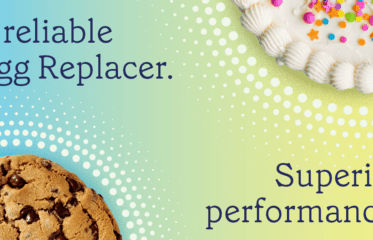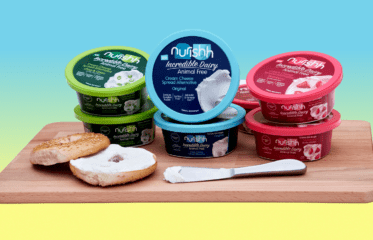Common Questions about Perfect Day

We have the chance to change how people think about what belongs on their plate, and in their world. By changing the process, not the food, we can build a more equitable, resilient, and diverse food system for all of us. Together, we can make the brightest future a reality: something you can see on a menu, buy on a shelf, hold in your hands, and taste with a spoon.
We believe real progress requires transparency and honesty, so let’s talk about some common questions we get about Perfect Day.
Why make protein from flora?
Our animal-free dairy protein made from flora is the first of its kind, using whey protein made by microflora, not cows, to make dairy that’s identical to traditional milk. Yes, we said identical.
We make this dairy protein through precision fermentation, which has existed for nearly 50 years and has been used to help make products including rennet in cheese, probiotics, citric acid, amino acids, and Vitamin B12. We were the first company to use this safe, well-established technology to make cost-effective proteins of this type. Our protein has been confirmed as Generally Recognized as Safe (GRAS) and has received a “no-objections” letter from the United States Food and Drug Administration (FDA).
In short, here’s why:
- Real dairy that’s 100% animal-free
- Tastes, scoops, and spreads the same as traditional dairy
- Reduces our impact on the environment: up to 99% less water use, up to 97% fewer greenhouse gas emissions, and up to 60% less energy use.
- Lactose-free
- Cholesterol-free
- GRAS status

Do you make non-dairy or dairy-free products?
Our animal-free milk protein is identical to what cows make, which means it can froth, whip, and foam just like milk – but can also trigger a milk allergy (that’s why products made with our protein are labeled ‘Contains milk protein’). The good news is that it’s lactose-free and made without animals.
Is your process sustainable?
We are reliant on the energy grid for several steps in our production process—and our Life Cycle Assessment (LCA) still showed that our process results in a reduction in environmental impact of up to 99% less water use, up to 97% fewer greenhouse gas emissions, and up to 60% less energy use, compared to traditional production methods for the same amount of protein. Reducing our reliance on the grid is a priority for us to even further reduce that impact, and we are actively exploring ways to own more of our manufacturing process.

How do you feel about traditional dairy farming?
We see a world where we can further help by using existing science and technology to reduce commodity pressure, enabling farmers to command premium prices for milk produced in a humane, sustainable manner.
We see a future of food as being one where sustainably-produced products exist up and down the ecosystem—with animal-free dairy existing alongside traditional and plant-based products from sustainable producers.
Is animal-free dairy a GMO?
We use genetically engineered microflora to produce milk protein, but the protein itself does not contain any detectable genetic material. The modified flora is filtered out after production, leaving only the pure milk protein we use in our product. Per the federal bioengineered labeling statute, we actually cannot call our products GMO or bioengineered.
We would also never want to call products made with our protein non-GMO, both because we want to be transparent about the genetic modification used in the upfront of our process and because we’re incredibly proud of this technology and the impact it stands to have.

Looking Ahead
We’re proud of what our technology enables, and the incredible work of our team to continue to scale this technology to safely make the foods we love in a new way that systemically reduces global warming. To feed and nourish our growing population without harming our planet, we need systematic changes to our food system.
We are proud of our process and are committed to being transparent about how we make our protein.
Learn more about our process and how we make our protein.
We’d love to hear your thoughts!
Your email address will not be shared.


